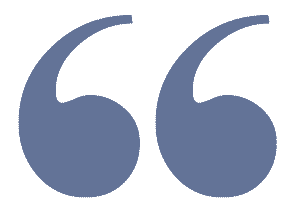Opinion | Here's a Fact: We're Routinely Asked to Use Leftist Fictions - The New York Times



Nov. 19, 2021 Credit...Delcan and Co.
- Read in app
-
Send any friend a story
As a subscriber, you have 10 gift articles to give each month. Anyone can read what you share.
Give this article - Share
- Read in app
By John McWhorter
Opinion Writer
Our times often put me in mind of Tennessee Williams's "Cat on a Hot Tin Roof," when Big Daddy says: "What is the smell in this room? Don't you notice it, Brick? Don't you notice a powerful and obnoxious odor of mendacity in this room?"
These days, an aroma of delusion lingers, with ideas presented to us from a supposedly brave new world that is, in reality, patently nonsensical. Yet we are expected to pretend otherwise. To point out the nakedness of the emperor is the height of impropriety, and I suspect that the sheer degree to which we are asked to engage in this dissimulation will go down as a hallmark of the era: Do you believe that a commitment to diversity should be crucial to the evaluation of a candidate for a physics professorship? Do you believe that it's mission-critical for doctors to describe people in particular danger of contracting certain diseases not as "vulnerable (or disadvantaged)" but as "oppressed (or made vulnerable or disenfranchised)"? Do you believe that being "diverse" does not make an applicant to a selective college or university more likely to be admitted?
In some circles these days, you are supposed to say you do.
The San Diego State University physics department is seeking a physicist. The job description asks candidates to show how they "satisfy" at least three of the following criteria: "(a) are committed to engaging in service with underrepresented populations within the discipline, (b) have demonstrated knowledge of barriers for underrepresented students and faculty within the discipline, (c) have experience or have demonstrated commitment to teaching and mentoring underrepresented students, (d) have experience or have demonstrated commitment to integrating understanding of underrepresented populations and communities into research, (e) have experience in or have demonstrated commitment to extending knowledge of opportunities and challenges in achieving artistic/scholarly success to members of an underrepresented group, (f) have experience in or have demonstrated commitment to research that engages underrepresented communities, (g) have expertise or demonstrated commitment to developing expertise in cross-cultural communication and collaboration, and/or (h) have research interests that contribute to diversity and equal opportunity in higher education."
They're all admirable activities and aims. However, they are vastly less applicable to becoming or being a physicist than to, say, social work, education or even disciplines such as anthropology and sociology. That an applicant to the university's physics department would be required to meet such benchmarks is a very modern proposition, and probably leaves most people now reading this job posting — physicists or not — scratching or shaking their heads. Yet this emphasis is increasingly found in fields related to the hard sciences: Earlier this year, for instance, leaders of the National Institutes of Health announced their "UNITE initiative," a "framework to end structural racism across the biomedical research enterprise."
The notion seems to be that practitioners and scholars, across disciplines, must devote a considerable part of their time to putatively antiracist initiatives. It's a bold proposition, but given how shaky its actual justification is, it is reasonable to think that lately this devotion is being imposed by fiat, as opposed to being an organic outpouring. And if the price for questioning that notion is to be seen as sitting somewhere on a spectrum ranging from retrogressive to racist, it's a price few are willing to pay. One is, rather, to pretend.
The American Medical Association and the Association of American Medical Colleges have released a "guide" that urges practitioners to employ a left-leaning glossary in pursuit of "health equity." The problem is that what they recommend would be all but inapplicable in the real world.
While caring for their patients, doctors are encouraged to mold their statements to reflect that vulnerability isn't merely extant, but something imposed upon some patients. That is true in a technical sense, but how realistic — or useful relative to the care itself — is it to propose that physicians should say "oppressed" rather than "vulnerable"? Or, based on the same sociopolitical perspective, what is the utility of replacing the statement, "Low-income people have the highest level of coronary artery disease in the United States" with "equity-focused language that acknowledges root causes" like "People underpaid and forced into poverty as a result of banking policies, real estate developers gentrifying neighborhoods, and corporations weakening the power of labor movements, among others, have the highest level of coronary artery disease in the United States"? Surely, even in our age, clinicians should focus on treatment, not medical newspeak.
The chances that real doctors will ever use language like this are minuscule. Commitment to healing the sick makes it plain that energy should be focused on ways of attending to the unhealthy, rather than to studiously ideological ways of talking about and to them. This means that all polite engagement with documents like this, from the very production of them to any forums in which their propositions are engaged politely, amounts to an act.
The jukebox musical based on Alanis Morissette's "Jagged Little Pill" includes a character who's a white mother of a Black daughter. In one scene, friends mention that the daughter will be more likely to get into a top-level university because she's Black. The mother takes this as a slam and gives a sharp retort implying that the very assumption is racist, with the additional assumption that the audience will agree (which it vocally did the night I attended a performance).
This, though, is fake. That selective schools regularly admit Black students with adjusted standards is undeniable. Examples include "Harvard's race-conscious admissions program" — as U.S. Circuit Judge Sandra Lynch described it last year — and the circumstances of the well-known Gratz v. Bollinger Supreme Court decision, where this aspect of the admissions process was widely aired, as among a number of other cases over the past few decades.
My point here isn't to debate the pros and cons of affirmative action. There are legitimate arguments on both sides of that debate. My point is that the existence of various forms of affirmative action in admissions is a fact, and saying otherwise is fiction. Beyond this musical, it is often suggested that it is disingenuous, if not racist, to surmise that a Black student was admitted to a school via racial preferences. But this leaves the question as to just what we are to assume the aim of these policies has been, when the educational establishment so vociferously defends them.
That athletes and legacy students are also admitted via preference does not belie the fact that there are also, at many schools, admissions preferences based on race. That this is not to be mentioned is a kind of politesse requiring that we prevaricate about a subject already difficult enough to discuss and adjudicate.
All of this typifies a strand running through our times, a thicker one than always, where we think of it as ordinary to not give voice to our questions about things that clearly merit them, terrified by the response that objectors often receive. History teaches us that this is never a good thing.
Have feedback? Send a note to McWhorter-newsletter@nytimes.com.
John McWhorter (@JohnHMcWhorter) is an associate professor of linguistics at Columbia University. He hosts the podcast "Lexicon Valley" and is the author, most recently, of "Woke Racism: How a New Religion Has Betrayed Black America."
Continue reading the main story

